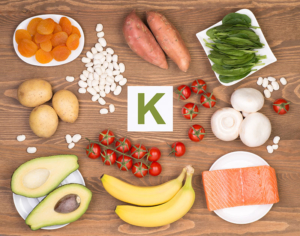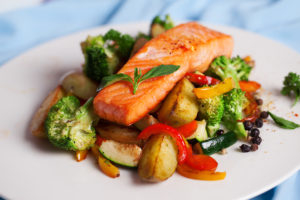Potassium May Lower Stroke Risk for Women

Learn how potassium may be able to lower stroke risk for women.
The banana you eat in the car on the way to work could be helping to reduce your risk of suffering a stroke! In a recent study of nearly 100,000 women ranging in age from 50 – 79, it was discovered that consuming a higher level of potassium resulted in a lower stroke risk for women by as much as 12%, and by 16% for the most common type – ischemic stroke. Not only that, but those with a higher potassium intake were 10% less likely to die from any cause.
It’s worth noting that blood pressure also played a role here. Those without high blood pressure showed even more promising results, a full 21% less likely to suffer from an ischemic stroke and 27% reduced risk of stroke altogether. This led researchers to suggest that those at risk of developing high blood pressure may benefit from increasing their intake of potassium to prevent future complications.
Great sources of potassium to help lower stroke risk for women include:
- White beans
- Bananas
- Leafy greens
- Sweet potatoes
- White potatoes
- Tomatoes
- Dairy foods
- Meat
Remember, it’s important to consult your physician before making any dietary changes, including adding more potassium to your diet, as consuming too much can be dangerous, especially for the elderly and those with kidney disease.
Did you know Responsive Home Care offers meal planning and preparation services, in accordance with any prescribed dietary plan? We can help increase potassium in a senior’s diet to help lower stroke risk for women as they age.
There are a variety of other ways we can help improve quality of life for older adults, right in the comfort of home, such as:
- Accompaniment to medical appointments and procedures, enjoyable outings – anywhere and anytime a senior needs or wants to go
- Companionship for conversations, reminiscing, fun activities, exercising, and more to brighten each day and alleviate loneliness and isolation
- Assisting with shopping for healthy food choices, picking up prescription refills, and more
- Light housekeeping and laundry, to ensure a clean and organized home environment
- Specialized care for those with chronic health needs, such as Alzheimer’s, Parkinson’s, COPD, etc.
- And so much more, according to each person’s individual needs
All of our services begin with a complimentary planning meeting in the senior’s home. This provides us with the opportunity to get to know the person and the challenges they are facing, and to create a customized plan of care to enhance safety, comfort, and independence.
Contact us online or call (954) 486-6440 to learn more about Responsive Home Care, the leading home health agency in Hollywood, FL and the nearby areas, and how we can make life the best it can be for someone you love!

